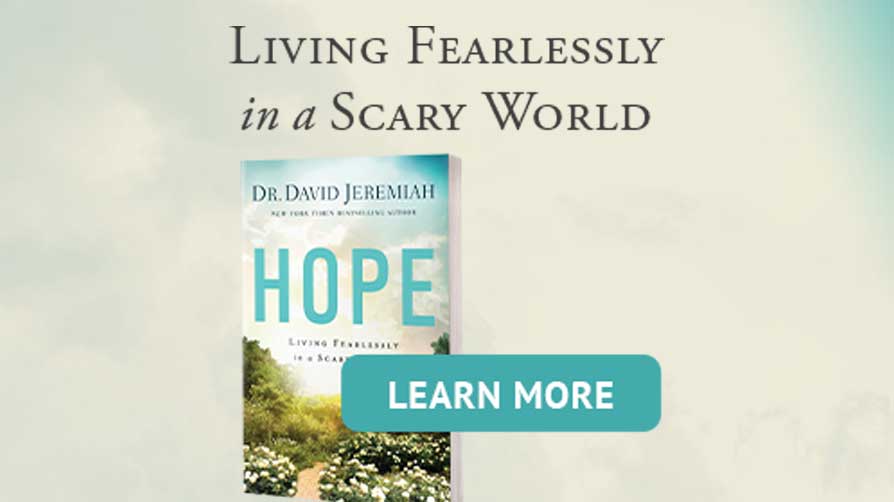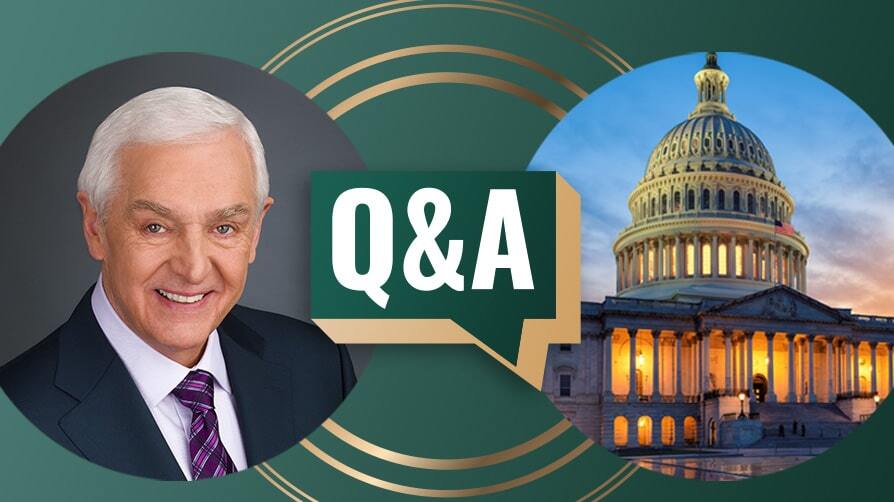5 Tips From King Solomon for a Risk–Free Investment Strategy
Money management may be one of the most misunderstood aspects of the Christian faith. How often have you heard someone say, “Money is the root of all evil?” Did you know that statement doesn’t appear anywhere in the Bible? It is a misquotation of 1 Timothy 6:10, which says, “The love of money is a root of all kinds of evil” (emphasis added).
It is not wrong for Christians to have money, even a great deal of it. Financial resources are a tool God gives us to accomplish a lot of good in this world.
The problem is our relationship with money. Later in 1 Timothy 6:10, the apostle Paul says, “Some have strayed from the faith in their greediness, and pierced themselves through with many sorrows.” If we want to manage our finances wisely, we can start by evaluating our heart and our motives. Let’s look at five financial principles from King Solomon, the ancient world’s wealthiest and wisest man.
1. The More We Have, the More We Want
He who loves silver will not be satisfied with silver; nor he who loves abundance, with increase. This also is vanity. Ecclesiastes 5:10
According to Forbes, Elon Musk unseated Jeff Bezos as the richest person in the world as of January 2021. Thanks to Tesla’s rising stock values, Musk’s net worth rose to $189.7 billion compared to Bezos’ $185 billion Amazon fortune.1 If you were to meet either of these men and discuss their dreams, you would probably discover that they are focused on getting more, particularly as more can be equated with their happiness.
From the migrant farmworker to the middle–class accountant, we always seem to want more.
But it’s not just the wealthy who want more. From the migrant farmworker to the middle–class accountant, we always seem to want more. The fire is fed but never quenched. The more we get, the more we want, and our happiness gradually slips away.
Jesus said, “Take heed and beware of covetousness, for one’s life does not consist in the abundance of the things he possesses” (Luke 12:15). Wouldn’t it be wonderful to be truly content? To free ourselves of the burden to accumulate more possessions? To be at peace with our place in life? Why do we make ourselves miserable over something with a lousy track record for satisfaction?
Contentment fueled Paul’s incredible power in ministry. He testified, “I have learned to be content whatever the circumstances. I know what it is to be in need, and I know what it is to have plenty. I have learned the secret of being content in any and every situation, whether well fed or hungry, whether living in plenty or in want” (Philippians 4:11–12, NIV)
2. The More We Have, the More We Spend
When goods increase, they increase who eat them; so what profit have the owners except to see them with their eyes? Ecclesiastes 5:11
When we receive a promotion with a generous raise, a wise choice would be to maintain our current lifestyle and apply the extra money to savings and charity. But before we know it, we often find ourselves imagining new cars, new furniture, and perhaps a second home. More money flows through our account each month, but our spending increases by the same amount.
The New Living Translation renders Ecclesiastes 5:11 this way: “The more you have, the more people come to help you spend it. So what good is wealth—except perhaps to watch it slip through your fingers!” Author William MacDonald says, “When a man’s possessions increase, it seems there’s a corresponding increase in the number of parasites who live off him: management consultants, tax advisers, accountants, lawyers, household employees, and sponging relatives.” The problem of fair–weather friends existed in the days of Solomon, and it continues to this day.
For many of us, the problem is not our income but our expenses.
3. The More We Have, the More We Worry
The sleep of a laboring man is sweet, whether he eats little or much; but the abundance of the rich will not permit him to sleep. Ecclesiastes 5:12
When wildfires began approaching my neighborhood several years ago, the order came to collect our valuables and evacuate our homes. Driving down the hill from our house, I turned to my wife, Donna, and said, “Do you realize it only took us ten minutes to collect our valuables? Everything else is just ‘stuff.’”
When you can fit all your life’s valuables in the backseat of your car, you can sleep well at night. By God’s grace, I can say I’ve never lost a night’s sleep over the status of my investments. Many people believe that the more money they have, the happier they’ll be, and the more soundly they’ll sleep at night, but the opposite is true. The more they get, the more they worry about preserving it.
If money is your source of strength, you’ll spend all your time worrying about what will happen when your defenses fail.
If money is your source of strength, you’ll spend all your time worrying about what will happen when your defenses fail. A far better choice would be to put your faith in an impenetrable Shield and Protector, the One who has said, “I will never leave you nor forsake you” (Hebrews 13:5).
When he was 53 years old, John D. Rockefeller was the world’s only billionaire. His income was $1 million per week. But he was a sick man who lived on crackers and milk and could not sleep because he worried so much about his money. Eventually, he learned how to give his money away, and his health improved radically. As a philanthropist, he lived to celebrate his 98th birthday.
Elderly couples reminisce about their box–of–macaroni days in a tiny apartment. They conclude that those may have been the best times in their marriage. The Great Depression was a terrible time for people, yet many folks remembered those same years fondly.
Financial difficulties flush us out of self–satisfied isolation. They force us to go out and meet people and to need some of them. As we grow more prosperous, there is a tendency to draw away from the community. We miss a lot of the little graces and relational encounters that make life real and satisfying. Rather than enjoying a taste of true happiness, we substitute trinkets that never live up to their shiny allure.
4. The More We Have, the More We Lose
There is another serious problem I have seen under the sun. Hoarding riches harms the saver. Money is put into risky investments that turn sour, and everything is lost. In the end, there is nothing left to pass on to one’s children. Ecclesiastes 5:13–14 (NLT)
Some of us experience this principle when we make large investments that lead to anxiety. Anyone who has ever bought a home for the first time is familiar with this. One day we are celebrating a new chapter in life, and the next, we are scraping the bottom of our checking account to pay a plumber or roofer. As our possessions increase, we find that we have more to lose. And soon, our happiness, joy, and personal peace depend on how protective we are of our possessions.
Other temptations are more insidious. We might not buy a big house or a new car, but we may indulge our taste buds whenever we sit down to eat. Afflictions like type 2 diabetes and coronary heart disease have earned the label “diseases of affluence” because they are associated with chronic over–nutrition and obesity—conditions virtually unheard of in the developing world. Good stewardship begins with our day–to–day decisions.
What does God intend for me to do with these resources?
When God entrusts us with wealth, He is endowing us with a responsibility to share with others. A good question to ask ourselves is, What does God intend for me to do with these resources? If He does not make the answer immediately apparent, our best decision is to wait for Him to reveal His plans as we study the Bible and pray.
5. The More We Have, the More We Leave Behind
We all come to the end of our lives as naked and empty–handed as on the day we were born. We can’t take our riches with us. And this, too, is a very serious problem. People leave this world no better off than when they came. All their hard work is for nothing—like working for the wind. Throughout their lives, they live under a cloud—frustrated, discouraged, and angry. Ecclesiastes 5:15–17 (NLT)
To put it another way, you can’t take it with you. It’s just common sense. Beyond the price tag, we pay for the things we accumulate with sweat and toil. Our effort is exchanged for money, which is exchanged for goods. Even so, we never own anything permanently; we only rent it until we pass from this earth. One day our precious possessions, even if they outlast us, will belong to someone else.
The flip side of that coin is positive: Bequests to charities, Christian ministries, and individuals have the potential to catalyze positive change in our world. Accumulation can work hand in hand with goals for God’s Kingdom. In eternal terms, we only need to remember that there is no own—only loan. And the more we give away, the less we worry, and the more happiness we can find here. Jesus tells us to “lay up for yourselves treasures in heaven, where neither moth nor rust destroys and where thieves do not break in and steal. For where your treasure is, there your heart will be also” (Matthew 6:20–21).
One way to experience satisfaction in this life is to make investments in the next.
One way to experience satisfaction in this life is to make investments in the next. We can access a risk–free portfolio through our tithes and offerings.
What is the best investment strategy? One that focuses on eternal dividends. Earthly treasures will never satisfy us or bring peace. They may not even survive the next economic downturn. But investing in God’s Kingdom offers an exponential return on our investment. Matthew 6:33 says, “Seek first the kingdom of God and His righteousness, and all these things shall be added to you.”
Sources:
1Sergei Klebnikov, “Elon Musk Is Now the Richest Person In The World, Officially Surpassing Jeff Bezos,” Forbes, January 8, 2021, https://www.forbes.com/sites/sergeiklebnikov/2021/01/08/elon–musk–is–now–the–richest–person–in–the–world–officially–surpassing–jeff–bezos/?sh=66cf48c33b86, accessed on January 13, 2021.
Featured
Most Popular
I need help

Your response has been received, and we will be praying for you.
Look for answers to some of the most common questions in the weeks ahead.










